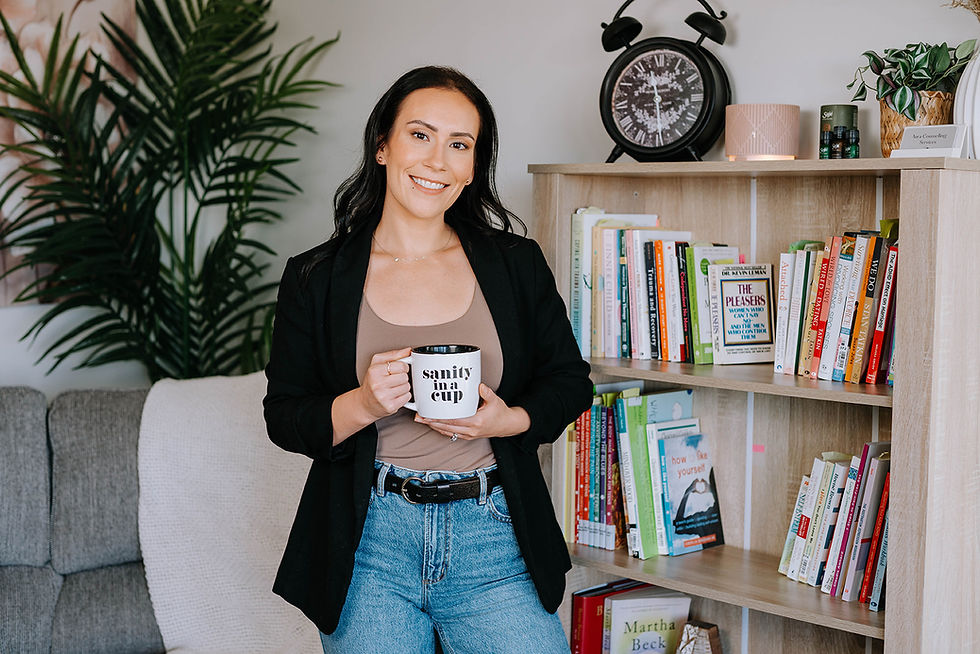How to Prepare for Your Virtual Therapy Session
- Maryse Hebert

- Oct 24, 2025
- 3 min read
Virtual psychotherapy is an excellent way to connect with a therapist in a way that is both convenient and supportive. Whether you're new to therapy or transitioning from in-person sessions, online therapy offers a flexible and effective alternative.

In this guide, we’ll walk you through the benefits of video psychotherapy and share essential tips to help you prepare for your first session.
Why Choose Video Psychotherapy?
There are many reasons why video psychotherapy is a great option:
Comfort and Convenience – Being in your own home can help you feel more relaxed and open during your session.
No Commute – If you have an emotionally heavy session, you won’t have to travel home afterward.
More Flexibility – Online therapy allows for more scheduling options that fit into your busy life.
Same Quality of Care – You’ll receive the same professional support as you would in an in-person session.
Accessibility – Ideal for individuals with mobility challenges, anxiety related to leaving home, transportation issues, or those living in remote areas.
Additional Resources – Your therapist can send you readings, exercises, and worksheets to complete between sessions.
Tech Checklist: Setting Up for Success
A smooth video session starts with proper preparation. Here are some tech-related steps to take:
Check Your Email – Your therapist will send instructions on how to access the secure video platform.
Test the Software – Our practice uses OWL Video, which is a secure software for health professionals and protects your personal health information. OWL Video is a web-based software, so you won't need to pre-download an app or software. You can access OWL video from your web browser on any device. Chrome is the recommended browser.
Check Your Internet Connection – Position yourself near your Wi-Fi router for a strong connection.
Limit Internet Use – Ask others in your home to avoid streaming or video chatting during your session to ensure the best connection quality.
Test Your Audio and Video – Do a test call to check your microphone, speakers, and camera.
Keep Your Device Charged – Plug in your device or keep your charger nearby.
Update Software – Ensure your operating system and browser are up to date for the best performance.
Trust Security Measures – The platform your therapist uses will have end-to-end encryption to keep your session confidential.
Creating a Private and Comfortable Space
One common concern with video therapy is privacy. Here’s how to make sure you feel secure:
Choose a Quiet Space – Find a room away from high-traffic areas.
Close the Door – Lock it if possible to avoid interruptions.
Use Background Noise – A white noise machine or soft music outside the room can prevent others from overhearing.
Inform Household Members – Let your family or roommates know you’ll need privacy during your session.
Schedule Strategically – Pick a time when your home is quieter.
Use Headphones – This ensures your therapist’s voice remains private and helps you hear more clearly.
Consider an Outdoor Option – If the weather permits, you could take your session in your backyard or on a walk.
To make the most of the experience, it helps to set up in a comfortable spot and position your device at a distance that feels natural. Preparing notes on topics you want to discuss and keeping a notepad handy can be useful. Having a glass of water or tea nearby adds to your comfort. If seeing yourself on camera feels distracting, covering your video feed with a small note can help. For those who prefer not to be on video, an audio-only session is always an option.
Ready to Get Started?
If you have any concerns about video therapy, don’t hesitate to discuss them with your therapist. Expressing any discomfort or uncertainty can help you and your therapist make adjustments to improve your experience. Remember, like any new experience, video therapy may take a little time to get used to. Most clients find that after a couple of sessions, they feel more comfortable with the format and confident in its effectiveness.
If you’re interested in booking a video psychotherapy session, reach out to our team today, or book online. Our trained therapists are here to support you with flexible and secure online sessions.
Article written by Maryse Hebert, Registered Psychotherapist & Clinical Director at Aura Counselling Services




Comments